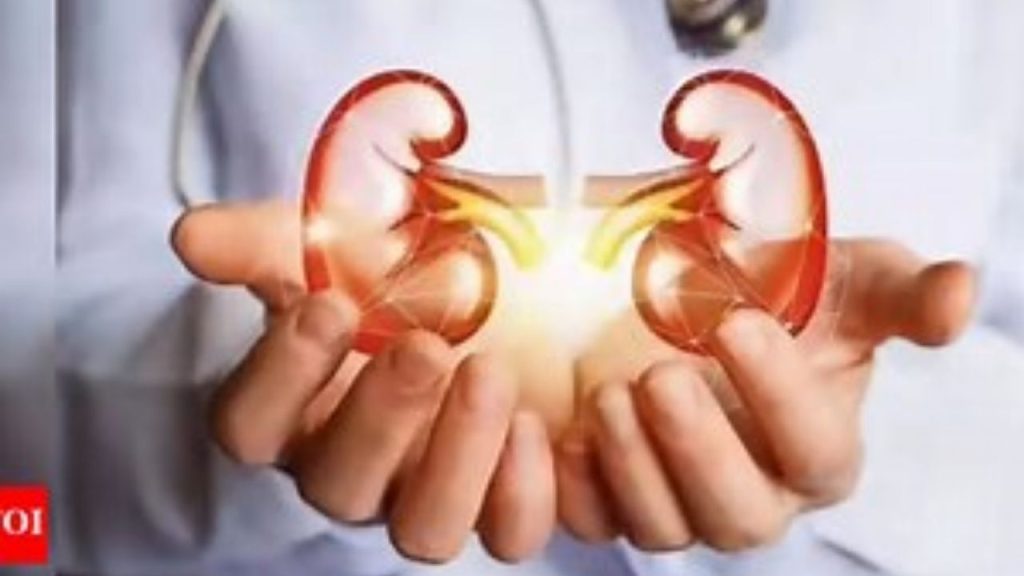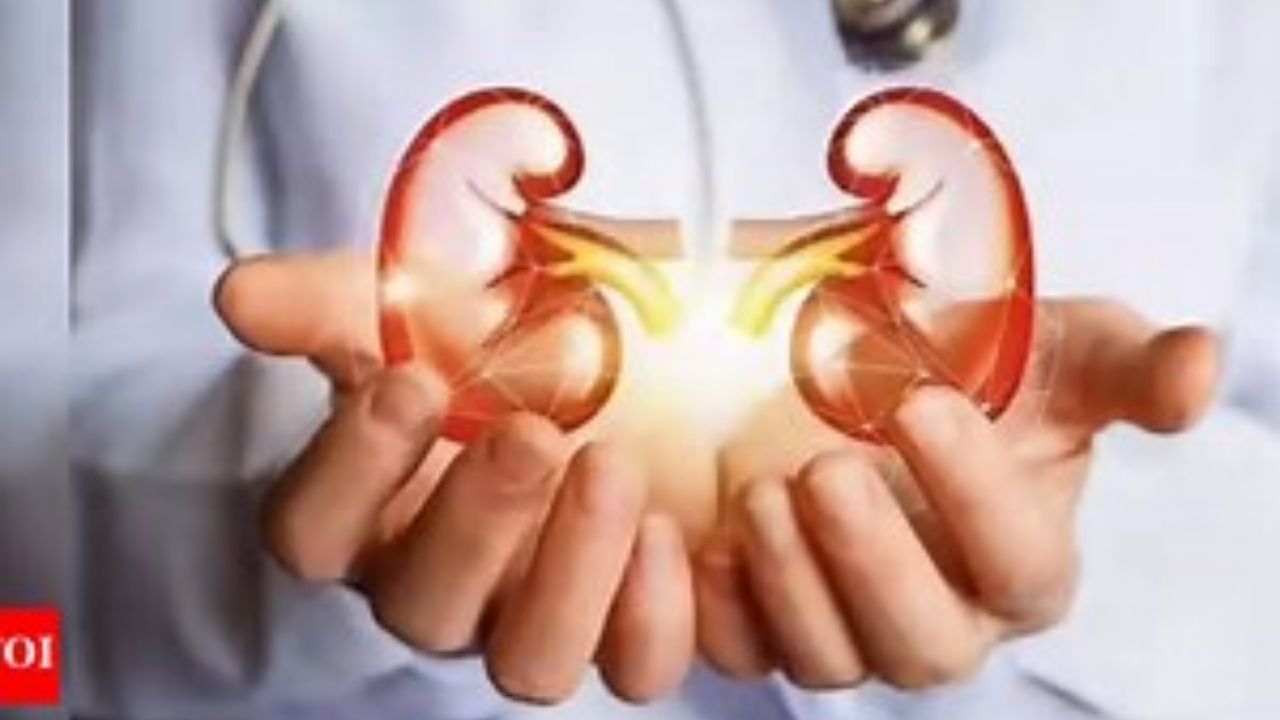In a recent and alarming development, the police in Visakhapatnam (Vizag), Andhra Pradesh, uncovered a disturbing case of kidney trafficking that has left many shocked. An Odisha man, who goes by the name Anand, was allegedly attempting to sell his kidney to alleviate his financial troubles. This case, though isolated, shines a spotlight on the darker side of organ trade in India, highlighting the exploitation of vulnerable individuals in dire need of money. But how did this shocking incident unfold? What can we learn from it, and why is kidney trafficking such a serious concern? Let’s break it down in simple terms.

Vizag Police Expose Shocking Kidney Trade
| Key Information | Details |
|---|---|
| Incident Location | Visakhapatnam (Vizag), Andhra Pradesh |
| Key Figures | Odisha man named Anand, involved in a kidney trafficking attempt |
| Legal Action Taken | Case filed under Section 318 of the Indian Penal Code (cheating) |
| Method of Discovery | Overheard conversation in hotel led to police investigation |
| Previous Cases of Kidney Trade in Vizag | Gorujalla Vinay Kumar, 32, forcibly had his kidney removed after being promised ₹8.5 lakh |
| Organ Trafficking Issue | Widespread issue in India with the vulnerable being exploited by traffickers |
| Link to More Information | Times of India on Kidney Trafficking |
The recent case uncovered by the Vizag police shines a light on a much larger issue: the persistence of kidney trafficking in India and around the world. While the government and legal authorities are working to curb this activity, individuals must also take responsibility by recognizing the risks and potential dangers involved in illegal organ trade. By staying informed and reporting suspicious activities, we can all help prevent such atrocities and protect vulnerable people from exploitation. Whether you are personally affected or simply wish to understand the issue, staying educated and vigilant is key to making a difference.
What Happened in Vizag?
In Visakhapatnam, a city known for its bustling economy and beautiful coastline, a bizarre and unsettling event unfolded. Police were alerted by hotel staff who overheard a conversation between two men—K Rangababu and Ch Yeshu Raju. The two men, staying at a hotel in Vizag, were discussing their plans to sell one of their kidneys due to financial hardship.
Hotel employees, recognizing the potential danger and illegal nature of the conversation, immediately contacted the authorities. The police investigation quickly unraveled a much larger story involving Anand, an individual from Odisha, who had reportedly booked several hotel rooms under suspicious circumstances. When the police tracked Anand down, they discovered he was attempting to broker a deal involving the sale of a kidney.
But the most shocking part of this story was Anand’s background. While initially thought to be a medical professional, there were growing suspicions that he might not be a doctor at all. Authorities are now working to verify his credentials and identify if he is truly qualified to perform medical procedures or if he was impersonating one.
The Bigger Issue: Organ Trafficking in India
This case is far from an isolated incident. India has struggled with the issue of illegal organ trade for many years. Kidney trafficking, in particular, has been a major problem. The need for organs often comes from those who are in desperate financial situations, while traffickers exploit this vulnerability to make huge profits. These criminal networks prey on those who believe they have few options left.
In a similar case in Visakhapatnam, a 32-year-old man named Gorujalla Vinay Kumar was allegedly kidnapped by a gang that promised him a hefty sum of ₹8.5 lakh for his kidney. However, after the illegal surgery, he received only ₹2.5 lakh, leaving him financially and physically scarred.
India’s Transplantation of Human Organs Act (THOA) aims to regulate organ donation and transplantation, ensuring that these procedures are carried out legally and ethically. However, there are still loopholes and challenges that make it difficult to completely eradicate organ trafficking. Traffickers often manipulate or coerce individuals into selling their organs, often without proper legal or medical safeguards.

Why Are People Turning to Illegal Kidney Trade?
It’s essential to understand why people like Anand and Kumar fall prey to kidney trafficking. Poverty is one of the leading factors. In a country with a significant wealth disparity, some individuals may see selling their organ as a quick way to escape financial struggles. The traffickers take advantage of their desperation, offering false promises of large sums of money, only to exploit them in the end.
A kidney can be sold on the black market for anywhere between ₹5 lakh to ₹10 lakh (or more). However, the person selling the kidney might not receive a fair amount, as shown in Kumar’s case, or could even face severe health consequences post-surgery.
What Can We Do to Prevent Organ Trade?
The issue of organ trafficking is a global problem, not just confined to India. Tackling it requires a comprehensive approach, including:
- Awareness and Education: The general public needs to be educated about the dangers and legal ramifications of illegal organ trade. Many individuals are unaware of how they can safely and legally donate organs.
- Stronger Laws and Enforcement: While laws like the THOA are in place, they must be enforced more strictly. Authorities must track and shut down organ trafficking networks, ensuring that perpetrators are prosecuted.
- Encourage Legal Organ Donation: India’s legal organ donation program allows individuals to donate organs to those in need, but the process is often slow and bureaucratic. Streamlining this system and providing more incentives for legal donations can help reduce the demand for illicit organ trade.
- Supporting Vulnerable Populations: Providing financial support and assistance to those who are at risk of being exploited by traffickers is essential. Government and non-government organizations should step in to help those in dire financial straits.
Recognizing and Preventing Kidney Trafficking
If you or someone you know is considering selling a kidney, it’s crucial to understand the consequences and explore all legal options first. Here’s a simple guide to help you avoid falling victim to kidney trafficking:
Step 1: Understand the Risks
Selling a kidney illegally can have serious health consequences. The human body is not designed to function with just one kidney, and you could face long-term health complications.
Step 2: Consider Legal Donation Options
If you’re looking to donate a kidney to help someone in need, make sure you go through the proper channels. India’s Organ Donation and Transplantation Network offers a legal and safe way to donate.
Step 3: Be Wary of “Too-Good-to-Be-True” Offers
Traffickers often promise large sums of money in exchange for organs, but these offers are rarely legitimate. If it sounds too good to be true, it probably is.
Step 4: Seek Financial Assistance
If you’re struggling financially, consider exploring other legitimate ways to get help. Government programs, non-profit organizations, and social services can provide assistance without putting your health and safety at risk.
Step 5: Report Suspicious Activities
If you suspect that someone is involved in organ trafficking or offering illegal services, report it to the authorities immediately. Your action could save lives and help dismantle a criminal network.
Master the Ancient Art of Sand Sculpting with Sudarsan Pattnaik’s Exclusive IGNOU Course
New Developments Emerge as Crime Branch Investigates Odisha Woman’s Death
FAQs
1. Is kidney trafficking illegal?
Yes, kidney trafficking is illegal in India and many other countries. Selling organs outside of regulated systems can result in severe legal penalties, including jail time.
2. Can I legally sell my kidney?
No, selling a kidney is illegal unless it is done through a regulated, legal system with proper medical procedures and consent.
3. How do I donate a kidney legally?
To donate a kidney legally in India, you must go through the official channels of the Organ Donation and Transplantation Network. This includes a thorough medical examination and meeting with transplant specialists.
4. What are the consequences of illegal kidney trade?
The consequences of participating in illegal kidney trade can include health complications, loss of life, criminal charges, and imprisonment.





